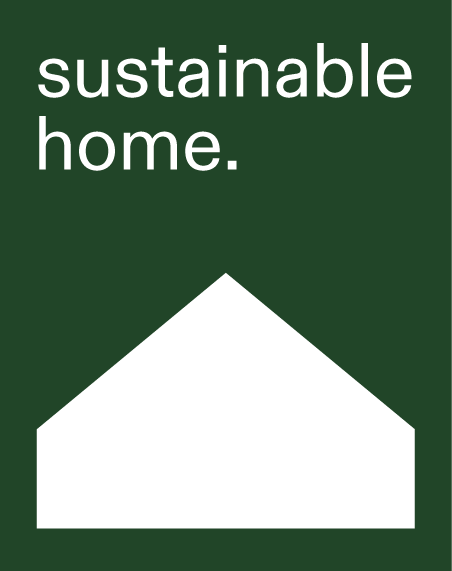At 110 square metres, the Perth family home of landscape architects Joel Barker and Hannah Pannell proves that good things come in small packages.
The couple have always been interested in sustainable homes, and in 2019 when they purchased an empty subdivided block, they got the chance to build one for themselves on the smallest possible footprint to maximise room for a lush, productive garden.
In the latest episode of TDF Talks, Joel and Hannah explain how they used a process of ‘push and pull’ to create the compact floorplan, making sure they didn’t compromise on either the house or garden.
Their efforts also lead to an extremely energy-efficient house (with a 9.3 star rating) where they almost never need to turn on the air-con or heater! Read on for more highlights from the episode.
All the savings that come with building a smaller home
The resulting house only takes up about one-third of Hannah and Joel’s 374-square-metre block. Not only did this make way for a great garden, but it instantly made their home more sustainable, taking much less energy to heat and cool.
It also meant it was more affordable. ‘We weren’t paying for a whole lot of square meters that we didn’t need, so that was probably the single biggest thing for us in terms of the budget,’ Hannah says. ‘Keeping it small meant we could have all these nice finishes that we had fallen in love with, but we just had a little bit less of them.’
The resulting house cost about $450,000 to construct from scratch, inclusive of the internal fixtures and fit-out.
How the sustainable features enhance the home’s liveability
Passive design principles were a key part of how the house was designed. The orientation was carefully considered and details like double-glazed windows help the interiors maintain a constant temperature, while simply opening the windows allows for the Fremantle breeze to naturally cool the rooms down in summer.
They’ve insulated the home so well that Hannah says sometimes you can’t get mobile reception: ‘It’s almost like a very naturally well-lit bunker!’
The inspiration for the design
‘Hannah’s from Albany and I’m from a small town called Bridgetown, so we’ve always been quite passionate about rural aesthetic architecture,’ Joel says.
This combined with their sustainable ethos led to the project’s pared-back material palette of burnished concrete floors, zincalume steel and plywood. Meanwhile the garden also takes its cues from the local area. Fremantle’s community of Greek and Italian immigrants inspired the couple to create their own Mediterranean-style fruit and vegetable patches, alongside leafy native plants that help shade the house.
Advice for anyone looking to create their own sustainable home
While they already had a ‘loose knowledge’ of sustainable design before they started, the couple found themsleves in a rabbit hole of research early on in the process. ‘We just really tried to learn as much as we could listening to podcasts and reading anything we could find, and trying to find examples in Australia where people had already been building this kind of house,’ Joel says.
But Hannah adds that it’s important not get hung up on making the ‘perfect’ sustainable home. ‘There’s some incredible examples of just amazing houses that have managed to do absolutely everything, and it can start to eel a little bit overwhelming,’ she says, noting that you can design a really great, functional sustainable house if you just focus on the foundations, and what’s achievable for your budget.
This episode of TDF talks is brought to you by Koala. Head to Koala to check out their full range of Australian-designed furniture at down-to-earth prices!
Listen to the full episode with Joel and Hannah below, or find TDF Talks on Spotify and Apple Podcasts.



























































